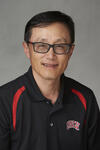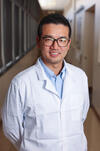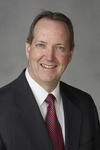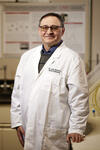In The News: Department of Mechanical Engineering
In recent years, sea life along California’s southern coast has been in a state of crisis, with growing numbers of deceased or sick sea lions washing up on shore. The cause can be traced to toxic algal blooms and domoic acid in particular, which acts as a neurotoxin and can lead to seizures, brain damage, and death. In order to diagnose and treat sick sea lions that are beaching themselves, veterinary professionals are on site to collect blood from the animals. In an effort to improve this procedure and enable vets to work more efficiently, a team of researchers from the University of Nevada, Las Vegas (UNLV) as developed a synthetic sea lion pelvis using a combination of medical imaging and 3D printing technologies.

The arid desert landscape of Death Valley is not the obvious place to find water. Yet it’s here, in one of the planet’s hottest and driest places, that Massachusetts Institute of Technology engineers decided to test new technology to pull drinking water from an unconventional source: the air.

The global water system is showing its fragility, and water resilience is fast becoming a defining challenge for economies and investors. UN-Water estimates two-thirds of the world’s population faces shortages for at least a month each year. Analysis by CDP warns that companies could face $225 billion in costs from water-related risks in the short term, while as much as $2.5 trillion in corporate revenue is at risk if water scarcity disrupts supply chains and markets.

Rep. Susie Lee hosted her summit at Springs Preserve on Thursday morning to discuss the most pressing issues regarding Las Vegas’ tiny share of the Colorado River. She was joined by U.S. Sen. Catherine Cortez Masto, D-Nev.; Colby Pellegrino, Southern Nevada Water Authority deputy general manager; the Colorado River Commission of Nevada and UNLV startup WAVR Technologies.

It might sound like science fiction, but for one startup in the valley, atmospheric water harvesting is reality. In the desert valley of Las Vegas, where water is as precious as gold, a team of researchers at WAVR is working to turn the air we breathe into the water we drink.
Those who have taken a road trip through the Southwest know that it is a very unique desert region, scattered with extraordinary canyons and lofty plateaus. As with any arid region, rainfall is scarce and temperatures are sky-high, making droughts inevitable. Thankfully, a bio-inspired film has been engineered by innovative minds, which pulls gallons of water per day by ‘drinking’ air like plants.
The workshop — a collaboration between UNLV and University of Nevada, Reno Extension — plants the seeds for the middle schoolers' interest in science and technology through activities with a hydroponics system.

Is Las Vegas the new Silicon Valley? A new venture fund is giving local start-up companies the money they need to succeed.
Turning dry desert air into drinkable water once sounded like something from a sci-fi movie. Now, it’s becoming reality—thanks to a breakthrough from researchers at the University of Nevada, Las Vegas. As water supplies shrink across the region due to drought and climate change, scientists have taken a huge step toward creating a sustainable water source from an unlikely place: the air.
US NuScale Power Corporation opened its latest Energy Exploration (E2) Centre at the University of Nevada, Las Vegas (UNLV) to help support the development of a skilled nuclear-ready workforce. The E2 Centre was co-funded by a grant from the US Department of Energy’s (DOE’s) Nuclear Energy University Program (NEUP).

The E2 Center will allow students at UNLV to take on the role of control room operator, providing the chance to gain real-life experience. It will also provide a means to conduct outreach to the community on the benefits of nuclear power through demonstrations and tours for local leaders, K-12 students, and the broader public.
The E2 Center will allow students at UNLV to take on the role of control room operator, providing the chance to gain real-life experience. It will also provide a means to conduct outreach to the community on the benefits of nuclear power through demonstrations and tours for local leaders, K-12 students, and the broader public.



